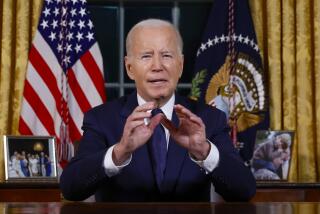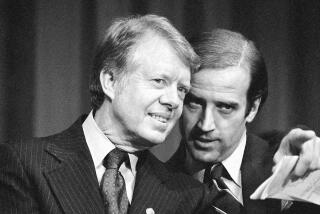Poindexter, North and the Congressional Committee
- Share via
Watching the Iran- contra hearings, I was reminded of an observation concerning the conduct of U.S. foreign policy made by the French observer of America, Alexis de Tocqueville, over 150 years ago:
“Foreign policy does not require the use of any of the good qualities peculiar to democracy but does demand the cultivation of almost all those which it lacks. Democracy favors the growth of the state’s internal resources; it extends comfort and develops public spirit, strengthens respect for law in the various classes of society, all of which things have no more than an indirect influence on the standing of one nation in respect to another. But a democracy finds it difficult to coordinate the details of a great undertaking and to fix on some plan and carry it through with determination in spite of obstacles. It has little capacity for combining measures in secret and waiting patiently for the result. Such qualities are more likely to belong to a single man or to an aristocracy.”
It is now clear from the hearings that the government did indeed have trouble coordinating the details of the “great undertaking,” what Lt. Col. Oliver North has called “the initiative.” The cumbersome wheels of democracy made him and the late CIA Director William Casey impatient, and they sought to create a “stand-alone intelligence capability” outside of the government. This was not democracy; it was, rather, a kind of unaccountable aristocracy.
As De Tocqueville pointed out, democracy does lack many of the characteristics that contribute to an effective foreign policy. But the alternatives to democratic control of foreign policy--one person rule or aristocracy--are, everything considered, decidedly inferior to democracy. That is the most important lesson of the Iran-contra imbroglio.
DAN CALDWELL
Malibu
More to Read
Get the L.A. Times Politics newsletter
Deeply reported insights into legislation, politics and policy from Sacramento, Washington and beyond. In your inbox twice per week.
You may occasionally receive promotional content from the Los Angeles Times.










